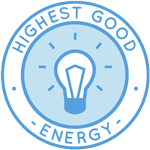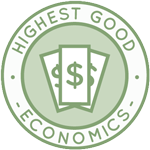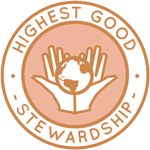Creating a Global Shift – One Community Weekly Progress Update #433
Creating a global shift towards sustainability is a process of involving enough people for the shift to happen. To reach that tipping point, One Community is developing all the open source tools, tutorials, and DIY plans and instructions needed. These plans cover food, energy, housing, education, for-profit and non-profit economic design, social architecture, fulfilled living, global stewardship practices, and more.
- Here’s our project overview
- Here’s our world-change methodology
- Here’s how this becomes self-replicating
- Here’s how we are open source and free-sharing all the do-it-yourself designs

OUR MAIN OPEN SOURCE HUBS
Click on each icon to be taken to the corresponding Highest Good hub page.
One Community’s physical location will forward this movement as the first of many self-replicating teacher/demonstration communities, villages, and cities to be built around the world creating a global shift. This is the July 11th, 2021 edition (#433) of our weekly progress update detailing our team’s development and accomplishments:
Creating a Global Shift
One Community Progress Update #433
DONATE | COLLABORATE | HELP WITH LARGE-SCALE FUNDING
CLICK HERE IF YOU’D LIKE TO RECEIVE AN EMAIL EACH WEEK WHEN WE RELEASE A NEW UPDATE
YOU CAN ALSO JOIN US THROUGH SOCIAL MEDIA
Creating a Global Shift
ONE COMMUNITY WEEKLY UPDATE DETAILS
CREATING A GLOBAL SHIFT – HIGHEST GOOD HOUSING PROGRESS
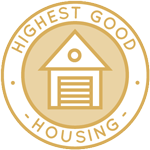 One Community is creating a global shift through Highest Good housing that is artistic and beautiful, more affordable, more space efficient, lasts longer, DIY buildable, and constructed with healthy and sustainable materials:
One Community is creating a global shift through Highest Good housing that is artistic and beautiful, more affordable, more space efficient, lasts longer, DIY buildable, and constructed with healthy and sustainable materials:
- Learn about: Our Upcoming Crowdfunding Campaign
- Learn about the different village models: 7 Sustainable Village Models
- Visit the open source portals for the first two: Earthbag Village OS Hub | Straw Bale Village OS Hub
This week the core team continued edits and additions to the “Best Small and Large-scale Plastic Recycling, Reuse, and Repurposing Community Options” article for creating a global shift. This week we finished editing, backed up all the videos and webpages, created the missing reference section, verified our work was according to the “Webpage Review Checklist”, and submitted it to our final-check review team. The pictures below share some of this work.
The core team also completed a thorough review of the grid-tie connection report for our solar microgrid designs.
Jose Luis Flores (Mechanical Engineer) completed his 51st week helping finish the Net-zero Bathroom component of the Earthbag Village. This week Jose Luis updated the snow load calculations of the Net-Zero Bathroom exterior roof to include the correct weight distribution.
He measured the total surface area the panels would rest on and the radial wall for creating a global shift. Combining these values into a ratio led to the correct weight distribution of the radial wall that was used in the Free Body Diagram.
The maximum snow depth increased to 21.7in which is still not sufficient. He began researching information on how snow behaved when collecting on a metal roof. The factors he discovered from the documents were roof pitch and change in temperature between the metal roof and the snow.
He will start researching data on the temperature fluctuations in a specific location to determine whether the snow will form ice dams or just slide into the center of the roof. If the latter were to occur, then measures would have to be taken in order to slowly distribute the snow as not to collapse the interior roof. The pictures below show some of this work.
Stacey Maillet (Graphic Designer) completed her 44th week working on the final edits and revisions to the Murphy bed instructions. This week Stacey continued working on updating lumber types and cutting lengths. She added new types of boards and revised how many pieces of each wood are needed part of creating a global shift.
She also continued changing all measurements to follow the correct formula of thickness x width x length, making sure they are all consistent throughout all the pages. The components and lumber pages are getting more complete but also more complex and detailed. Stacey added a few new renders and images to the instructions too. Screenshots below are related to this latest progress.
Jeson Hu (Aerospace Engineer) completed his 18th week helping with research related to the solar microgrid design, sizing, and cost analysis specifics. This week, Jeson contacted RMP and Garkane engineers for the power rate and interconnection program information.
From the information that Garkane’s engineer Bryant provided, the on-grid option would be too expensive since we would need to increase the size of the solar panel array by more than we’re willing. Jeson also followed up with Bryant regarding the previous interconnect offer that was being made for our final decision making.
If the offer does not show too much of a rate change, Vicente recommends the off-grid option instead of increasing solar panel array size. Jeson also capitalized all the subtitles and centered them, and then addressed all the new comments on the best solar hardware research.
Furthermore, he continued the research of the diesel generators, including finding products, inputting product specs, and saving product documents and web links for creating a global shift. The pictures below share some of this developing work.
Daniela Andrea Parada (Civil Engineering Student) completed her 12th week helping with the Sustainable Roadways, Walkways, and Landscaping tutorial development. This week Daniela started off by editing the fire access road for the Earthbag Village. The road was edited, but because the majority of the fire access road must be within the main road, it caused some issues.
The main road was expanded to fit the fire access road, but it exceeded the desired width of the main road. Various versions of the access road were attempted in order to decrease the main road width but none were successful. Daniela then worked on the easement access to the property. She worked with Google Earth and AutoCAD to import the property boundary for creating a global shift.
Once completed Daniela overlaid the boundary along with images onto an AutoCAD file containing the property contours. Five feet to both sides of the boundary were included for the easement and roadways were outlined. Pictures of some of this work are below.
Katherine Cao (Chemical Engineer) also completed her 7th week working on the grid-tie connection details for our solar microgrid designs. This week Katherine read and replied to the feedback from peers and her supervisor, and made corrections based on those comments. She also did more research on the cost for our specific project for creating a global shift. Pictures below are related to this work.
Nicholas K. de León (Project Management Adviser) completed his 5th week helping with review of Highest Good Housing research and related tasks for creating a global shift. Nicholas continued with edits, working on new documents including the Grid-tie Tutorial.
In addition to new edits, he went over older suggestions and cleared those that were satisfactory, suggesting others when necessary. Overall, Nicholas saw some improvements made to many of the documents, bringing them closer to the point of publication. Pictures below show some of this work-in-progress.
Frank Roland Vilcapaza Diaz (Mechanical Engineer) completed his 5th week helping with the Earthbag Village energy specifics. This week Frank worked on reading through “HVAC: Design Criteria, Options, Selection and Selection Tips for Air Conditioning Cooling Systems” to work on the selection of a system of AC for the Tropical Atrium as well as to get informed on the information on the Ultimate Classroom to work on the energy demand of that structure for creating a global shift. The pictures below relate to this.
Shreyas Dayanand (Battery Research Engineer) also completed his 2nd week helping with the solar microgrid design specifics related to electric vehicles and battery sizing. This week Shreyas researched and accumulated data regarding 4 golf carts for commercial use and their related battery options, charging, etc.
He also researched about the features and capabilities of the Ford F150 Lightning and how they can be implemented to be used in the community as possible backup power key to creating a global shift. He additionally came up with a DIY procedure to connect EVs to the grid to use them as an emergency power supply. Pictures below relate to this work-in-progress.
Jarot Tamba (Civil Engineering Intern) joined the team and completed his 1st week helping with the Aircrete and earthbag compression testing. He attended a group meeting where he learned about the compression testing details the team will be working on.
Jarot then spent the first part of the week developing his understanding about how to make aircrete, the uses of it, and comparing that information to similar uses with standard concrete and stabilized earth for creating a global shift.
The latter portion of the week was spent narrowing down a proposal of ratios and proportions for the material which would best suit the needs of the project. Many questions remain and research continues. Pictures below realted to this work.
Dominick Banuelos (Civil Engineering Intern) joined the team and completed his 1st week helping with the Aircrete and earthbag compression testing. This week Dominick spent his time learning about aircrete which is something completely new to him.
In the process of doing research, he has learned about what aircrete is and how it is made. Aircrete is a mixture of concrete and foam which comes from dish soap! In order to get the foam, the ratio which is applied to this is using around 2 cups of dish soap mixed with about 5 gallons of water.
The foam itself comes from adding air pressure to the soap and water using a foam making machine and it will create the foam that is used in the concrete. The foam is usually created at a pressure between 60 and 80 psi. Something not mentioned is the soap that will be used for this project which is Seventh Generation dish soap.
Dominick learned that Seventh Generation dish soap has the glycerin added to the dish soap which is a stabilizer in order to get the best foam possible. Many dish soaps do not have glycerin which is why they are not suitable for this project.
Something to keep in mind is making sure that the foam weight stays around the same for the whole project as it can lead to issues with the concrete. Having little air in the foam will cause it to be lighter and having too much air will cause it to be heavier.
Considering there is a specific weight that needs to be maintained, it is important to make sure the weight is consistent. Dominick also researched stabilized earth mixes and regular concrete mixes, and will continue with more research on those topics to help creating a global shift. Below are some images related to this work.
John Paul D. Matining (Civil Engineer Intern) joined the team and completed his 1st week helping with the Aircrete and earthbag compression testing. This week John educated himself in the art of aircrete.
Using many references, he learned in depth the process and proper way for aircrete to be made. Over 15+ hours of watching and reading to gain decent knowledge of the aircrete and earthbag. He also tried thinking of concepts that could quicken or make the process of creating a global shift more efficient. The pictures below relate to this work.
Marcus Nguyen (Civil Engineering Intern) joined the team and completed his 1st week helping with the Aircrete and earthbag compression testing. This week Marcus had a meeting with his group to go over all the required instructions for being part of the Aircrete and Stabilized Earth Testing and documentation requirements as part of creating a global shift.
As of this week, he has completed seven out of eight “Actions” for the “General Onboarding Checklist”. Marcus and his group constructed a rough schedule for this summer project and provided their weekly hours to put into the system.
For this first week, Marcus did his research on AirCrete, Earthbag, and other concrete materials to better understand the use and requirement for using it in a mix. This research will help towards making a plan on how to make each mix and determining how testing will be scheduled for creating a global shift. The pictures below share some of this developing work.
CREATING A GLOBAL SHIFT – DUPLICABLE CITY CENTER PROGRESS
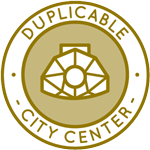 One Community is creating a global shift through a Duplicable and Sustainable City Center that is LEED Platinum certified/Sustainable, can feed 200 people at a time, provide laundry for over 300 people, is beautiful, spacious, and saves resources, money, and space:
One Community is creating a global shift through a Duplicable and Sustainable City Center that is LEED Platinum certified/Sustainable, can feed 200 people at a time, provide laundry for over 300 people, is beautiful, spacious, and saves resources, money, and space:
- Learn about this building and it’s function: Duplicable City Center Open Source Hub
This week the core team continued review and feedback on the Sustainable Roadways, Walkways, and Landscaping tutorial. The focus for the week was making comments and addressing some older comments related to the doc.
This week’s work has taken us through page 120 and included sections on Porous Concrete Design, Decomposed Granite Paving Design, and Rigid Pavement Design all for creating a global shift. Pictures below show some of this work-in-progress.
The core team also continued work on the City Center hub connector work and helped Neel with the energy estimates for the City Center by preparing spreadsheet for him to use. We also continued with Energy Demand estimates for the Straw Bale village for creating a global shift.
Ian Oliver Malinay (Energy Modeler/Analyst) completed his 26th week helping run the energy analysis calculations to help us achieve LEED Platinum status for the Duplicable City Center. This week, Ian continued to update the energy modeling narrative documents.
There’s some additional information that he created as reference on how to process the proposed design for LEED energy modeling that also complies to ASHRAE standard, especially to Appendix G. Ian continues to do as much as possible to attain the highest possible points in the energy modeling categories of LEED for creating a global shift.
Included in the narrative documents are all the data inputs required for proposed building design that is more efficient than the baseline standard of ASHRAE. Please see progress photos below for reference.
David Na (Project Management Adviser/Engineer) completed his 20th week helping with input and management of the Parking Lot and Sustainable Roadways, Walkways, and Landscaping tutorial development, as well as the City Center Water Catchment Designs.
This week David began by reviewing the progress update google doc and reviewing any new comments he had received from the following week. From there he assigned action items to his team with the goal of wrapping up the Roadways, Walkways, and Landscaping section within the next two weeks.
He also began to read up/proofread on the grid-tie system so that he can understand how it ties into the easements for Earthbag Village, Community Center, and other proposed developments in creating a global shift. David is also continually working on trying to finish the parking lot plan, and will have access to CAD next week to draw out a preliminary design for it. Pictures below are related to this work.
Carol Nguyen (Civil Engineer) also completed her 11th week helping with the Sustainable Roadways, Walkways, and Landscaping tutorial development for creating a global shift. This week, Carol created cross sections on AutoCAD for different types of pavement, including flexible/asphalt pavement, porous asphalt pavement, and rigid/concrete pavement.
In addition, she also started working on the comparison table for “Alternative Pavement Options” including porous asphalt, decomposed granite, paving stones, PICP, brick, gravel, and turf block. The pictures below share some of this developing work.
Neel Shanbhag (Control Systems Electrical Engineer) completed his 5th week helping with the Duplicable City Center Electrical designs as a part of creating a global shift. This week Neel finished the cut sheets (4 items that were missing) and started working and researching about energy demand for the structure. Pictures of some of this work are below.
Also, Venus Abdollahi (Architectural Designer) joined the team and completed her 1st week helping finish the Duplicable City Center roof designs as part of creating a global shift. This week Venus started development of the City Center Living Dome roof design by detailing the roof, making the isometric section, and adding R-value specifics.
For detailing the roof, she is using Revit to create details and callouts, and also added different layers and annotated them. The isometric section is still in process but Venus was able to complete details and the 3D isometric section. Pictures below show some of this work.
CREATING A GLOBAL SHIFT – HIGHEST GOOD FOOD PROGRESS
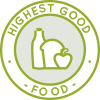 One Community is creating a global shift through Highest Good food that is more diverse, more nutritious, locally grown and sustainable, and part of our open source botanical garden model to support and share bio-diversity:
One Community is creating a global shift through Highest Good food that is more diverse, more nutritious, locally grown and sustainable, and part of our open source botanical garden model to support and share bio-diversity:
- Learn about the structures: Hoop House Hub | Aquapini & Walipini Open Source Hub
- See what we’ll be growing: Gardens & Hoop Houses | Large-scale Structures | Food Forest | TA
This week the core team continued creating updated SketchUp models for the final designs of the Aquapinis/Walipinis as part of creating a global shift.We added support units under the aquapini beds, designed mushroom log stacking and designed a 4′ wide path that can accommodate a wheelbarrow.
We also began work on designs for a small rest area that is close to the entry door with a rock resting area and small wooden table with flowers in the center. Pictures below are related to this work.
This week Qiuheng Xu (Landscape Designer) completed her 40th week volunteering, now helping with the Aquapini & Walipini external landscaping details for creating a global shift. This week Qiuheng imported the model to Lumion and was able to apply all the materials for rendering. She also replaced all 2D plant materials into 3D Lumion models. Below are some rendered views from this work.
CREATING A GLOBAL SHIFT – HIGHEST GOOD EDUCATION PROGRESS
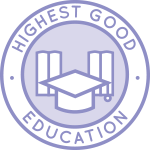 One Community is creating a global shift through Highest Good education that is for all ages, applicable in any environment, adaptable to individual needs, far exceeds traditional education standards, and more fun for both the teachers and the students.
One Community is creating a global shift through Highest Good education that is for all ages, applicable in any environment, adaptable to individual needs, far exceeds traditional education standards, and more fun for both the teachers and the students.
This component of One Community is about 95% complete with only the Open Source School Licensing and Ultimate Classroom construction and assembly details remaining to be finished. We’ll report on the final two elements to be finished as we develop them.
With over 8 years of work invested in the process, the sections below are all complete until we move onto the property and continue the development and open sourcing process with teachers and students – a development process that is built directly into the structure of the education program aimed at creating a global shift and everything else we’re creating too:
- Program Overview: Education Open Source Hub
- How the components work together: How to use the Education for Life Program
- Creating a global shift- Lesson Plans for Life – Lesson Plans How-to
- Creating a global shift- Foundations of Outstanding Leaders, Teachers, and Communicators
- Creating a global shift– Curriculum for Life
- Creating a global shift– Teaching Strategies for Life
- Creating a global shift- Learning Tools and Toys for Life
- Creating a global shift– Evaluation and Evolution
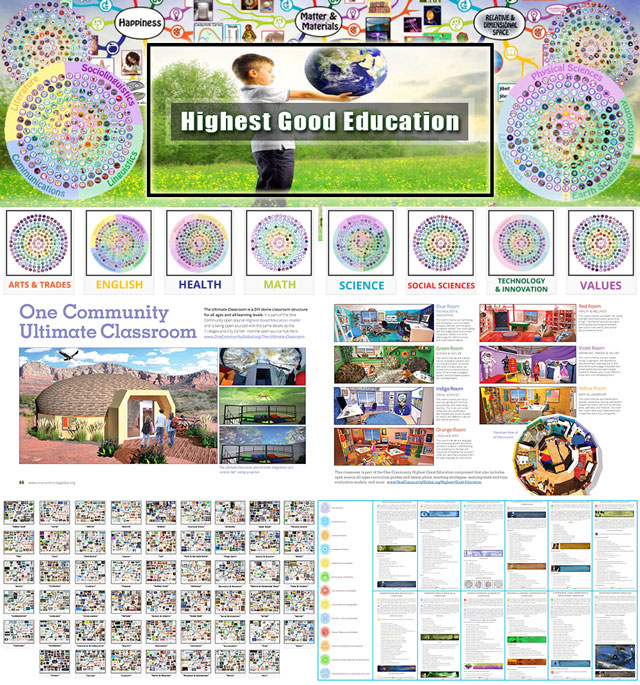
Highest Good Education: All Subjects | All Learning Levels | Any Age – Click image for open source hub
CREATING A GLOBAL SHIFT – HIGHEST GOOD SOCIETY PROGRESS
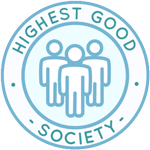 One Community is creating a global shift through a Highest Good society approach to living that is founded on fulfilled living, the study of meeting human needs, Community, and making a difference in the world:
One Community is creating a global shift through a Highest Good society approach to living that is founded on fulfilled living, the study of meeting human needs, Community, and making a difference in the world:
- Read the Highest Good society overview: Highest Good Society
- Learn about the model for fulfilled living and sharing: A Day in the Life
- Learn about the 4 economic models: RBE | For-profit | Non-profit | Entrepreneurship
- Learn about our open source community collaboration and management software: The Highest Good Network
This week the core team completed 24 hours managing One Community emails, social media accounts, interviewing potential new volunteer team members, and managing volunteer-work review and collaboration not mentioned elsewhere here for creating a global shift. Also more testing and bug identification was done within the Beta version of the Highest Good Network software.
The core team also created a new Subscribe page, setup the confirmation pages and messages, and all the other Mailchip custom details.
Chris Weilacker (Software Engineer) completed his 30th week working on the Highest Good Network software. This week Chris modified the projects page to allow for categories to be added to projects for Badge assignment and created a link to the future inventory management page on a per-project basis.
He also worked on getting the auto-assign code working for most badge types but still needs to do some testing on that front before moving to beta. Finally, Chris helped OJ build out the API’s for inventory management contributing towards the vision for creating a global shift. Pictures below are related to this work.
Yueru Zhao (Software Engineer) completed her 21st week working on the Highest Good Network software and contributing towards creating a global shift. This week Yueru mainly worked on making filters have more than one option in the same filter list on the person reporting page. Now the users can select both food and housing in classification filters.
She also added an arrow sign on the collapse button. Yueru additionally changed the assignment filter from dropdown list to radio button since only two options are available for assignment filter. She also modified the UI part on the selected filters options part to make it easier for users to see the options they chose. The pictures below are related to this work.
Malathi Perumal (Beta Testing Tester) completed her 6th week working on the Highest Good Network software working towards creating a global shift This week Malathi created hours to validate the badge functionalities and she validated the “create new user” functionalities and raised a bug, “accepting duplicate email id and phone number”.
Malathi also raised an observation to set the hours as 40 for “create new user” window and she reviewed and commented on Pull Request #163. See below for pictures related to this work.
OJ Alcaraz (Software Engineer) also completed his 2nd week working on the Highest Good Network software. This week OJ continued to work on the inventory controller API working towards creating a global shift.
He also tested some of the methods Chris worked on in the same API. OJ additionally continued to get up to speed with Mongo DB and Node.js. OJ will be testing the remaining methods in the inventory controller to wrap up the week. The pictures below relate to this work.
Robert Pioch (Graphic Designer) completed his 18th week helping with the new badges for the badges section on the Dashboard of the Highest Good Network. This week Robert designed the Highest Good Stewardship badge for 400 hours of service.
And, last but not least, Jin Hua (Web Marketer and Graphic Designer) helped us import our contacts to mailchimp, performed a final functionality test and confirmed the Mailchimp setup a success. Creating marketing campaigns is a good way to spread the word about creating a global shift. See pics below related to this.
AND WE PRODUCED THIS WEEKLY UPDATES BLOG – CLICK HERE TO SUBSCRIBE
FOLLOW ONE COMMUNITY’S PROGRESS (click icons for our pages)
INVESTOR PAGES
GET INVOLVED
DONATE | WAYS ANYONE CAN HELP | MEMBERSHIP
CLICK HERE FOR ALL PAST UPDATES
 One Community
One Community